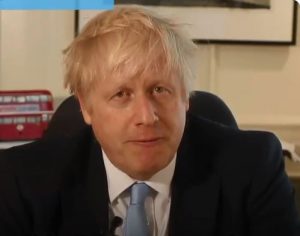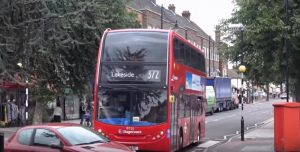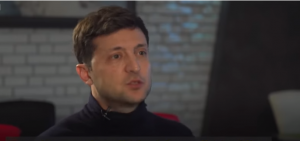
29 January 2021. The Guardian, UK: Brussels has been forced into a humiliating U-turn in the face of outrage in London and Dublin after seeking to trigger a Brexit deal clause to establish border controls on vaccine doses moving into Northern Ireland from the Republic.
The European commission was forced to backtrack on its plan to effectively erect a vaccine border on the island of Ireland after both Boris Johnson and the Irish taoiseach, Micheál Martin, spoke personally to its president, Ursula von der Leyen.
EU sources said it had acted “in error” but the crisis highlighted the growing political furore over the lack of vaccine supply and tensions with the UK.
The move had been part of the European commission’s announcement that all vaccine suppliers will have to seek authorisation of their exports, because of shortages in the EU.
Exports of vaccines could be blocked if they are regarded as a threat to the timely delivery of doses to EU citizens from companies that have contracts with the bloc.
The EU has been outraged by AstraZeneca’s announcement that it will only be able to deliver 25% of the 100m vaccine doses planned until the end of March.
The company has refused to divert vaccine from UK plants to make good the shortfall. Brussels has raised suspicions that doses have been moved from the EU to Britain in recent months.
The commission wanted to ensure that vaccine could not be exported to the UK through the backdoor of Northern Ireland. But under the Brexit withdrawal agreement exports cannot be restricted between Northern Ireland, which remains within the EU’s single market, and Great Britain.
To ensure doses could not pass into the UK through Northern Ireland, the commission had said it wanted to trigger a clause in the withdrawal agreement to allow it to control exports between the south and north of the island of Ireland.
Within hours of the intention becoming public, however, the commission was backtracking in the face of protest from the DUP, Sinn Féin, both the British and Irish governments and even the archbishop of Canterbury.
Johnson and Martin, had spoken directly to Von der Leyen, on Friday evening to express what sources described as “deep unhappiness” with the triggering of article 16 of the Northern Ireland protocol.
A No 10 spokesperson said the UK was “urgently seeking an explanation from the European commission” about the move.
“The UK has legally-binding agreements with vaccine suppliers and it would not expect the EU, as a friend and ally, to do anything to disrupt the fulfilment of these contracts,” the spokesperson said, adding that the UK has “reiterated the importance of preserving the benefits of the Belfast/Good Friday agreement”.
Later on Friday evening, the spokesperson said Boris Johnson and Martin had held a “constructive discussion ”.
Following a call with the taoiseach, Von der Leyen tweeted: “I spoke to Taoiseach Micheál Martin this evening to agree on a satisfactory way to introduce an export authorisation mechanism for COVID vaccines.”
In a subsequent statement, the commission said that when finalising an the export control mechanism they would “ensure that the Ireland/Northern Ireland protocol is unaffected”.
“The commission is not triggering the safeguard clause,” the commission said. “Should transits of vaccines and active substances toward third countries be abused to circumvent the authorisation system, the EU will consider using all the instruments at its disposal.”
Martin tweeted his support of the change of direction by the European commission, saying it was a “welcome decision”.
Welcome decision by the European Commission tonight not to invoke the safeguard clause of the Ireland / Northern Ireland Protocol following constructive discussions with @vonderleyen
This is a positive development given the many challenges we face in tackling COVID-19.
— Micheál Martin (@MichealMartinTD) January 29, 2021
Earlier, underlining the intensity of the vaccine crisis, France’s president, Emmanuel Macron, had warned in an interview with the Guardian that the EU had to “control” vaccine exports out of the bloc due to “questionable behaviour” by the Anglo-Swedish pharmaceutical company AstraZeneca.
Macron said controls needed to be erected out of concern that a major shortfall in doses by AstraZeneca, with which the EU has a 400m dose order, was a result of an “over delivery” of doses to countries outside the bloc.
“It should be controlled because there is questionable behaviour and we will be receiving fewer deliveries that do not honour the contractual engagements agreed,” he said.




